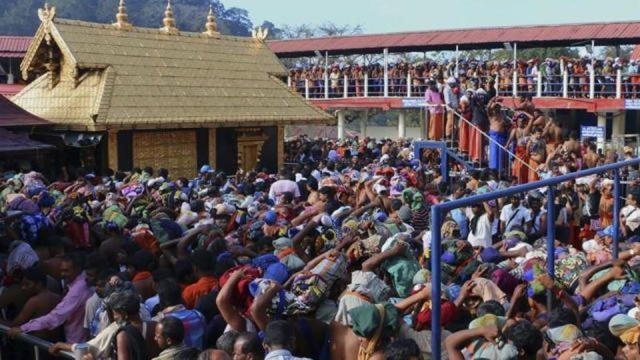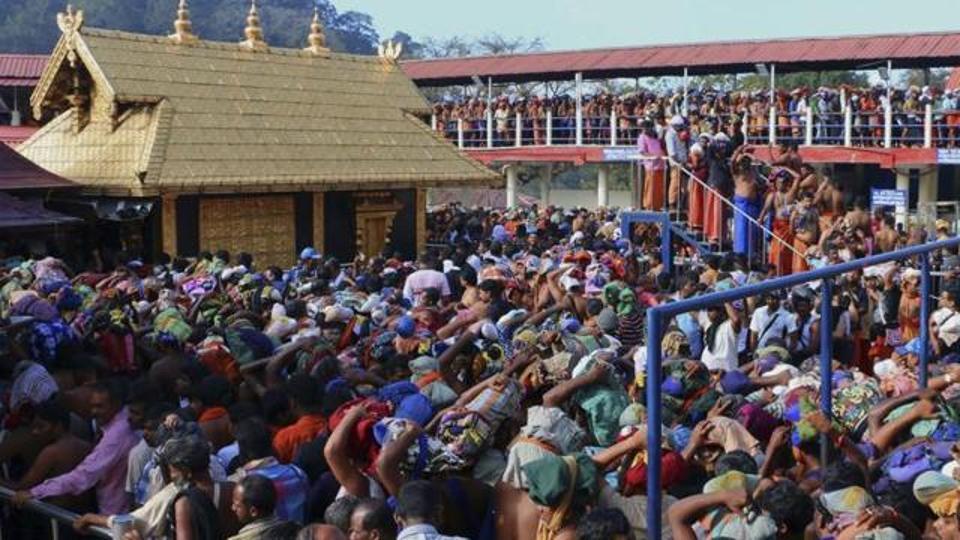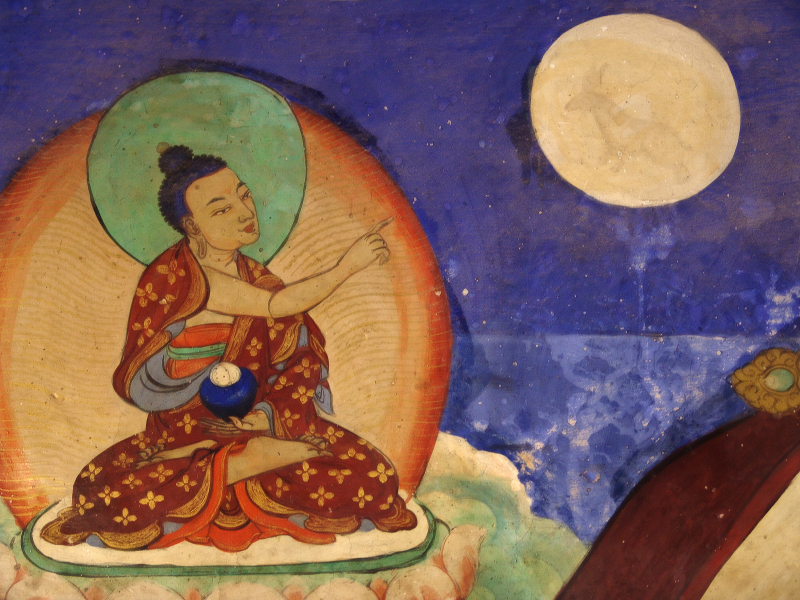Women are equal citizens with the same fundamental rights like their male counterparts. However, in Sabarimala temple women between the age group of 10-50 years are not allowed their right to worship freely based on archaic customary practices. Can the Constitutional Bench contest this practice and return to women their right to equality?

Sabarimala is a well-known Hindu pilgrimage site located in the Periyar Tiger Reserve in the Pathanamthitta District of Kerala. The temple is situated on a hilltop and is surrounded by mountains and lush green forests. In 1991, the Kerala High Court restricted the entry of women between the ages of 10-50 years from offering worship at Sabarimala Shrine as they were of the menstruating age. At present the Supreme Court of India has taken a petition to review the judgment of High Court and allow the entry of women into the temple and its premises.
A Constitution Bench is to decide whether the rights of women, especially their fundamental right to religious freedom and to pray at the place of their choice, can be discriminated against by a temple managed by a statutory board — here the Travancore Devaswom Board — created by a State legislature. It is widely understood and agreed upon that customs and traditions under no circumstance can be allowed to violate law or the fundamental rights of individuals. It is to be noted that the temple authorities have justified the age-old practice arguing that it can be traced by to their cultural traditions.
Framing the questions for reference to the Constitution Bench, a Bench of Chief Justice of India Dipak Misra and Justices R. Banumathi and Ashok Bhushan pointed out that it was primarily the Constitution Bench that would decide whether the practice of ban on women was a case of gender discrimination, violation of their right to equality and their religious freedom.
A significant aspect of the Bench’s decision would be to see whether the ban is protected by Article 25 (the right to religious freedom) of Ayyappa devotees.
It will decide whether the ban qualifies as an “essential religious practice” of the Hindu faith, over which the apex court has no jurisdiction. It will also decide whether Ayyappa devotees constitute an altogether separate religious denomination. However the most important part of its decision would be to see whether a temple managed by a statutory board can “indulge” in the practice of banning women from entry on moral grounds.
The Constitution Bench will decide if the ban enforced under Rule 3 (b) of the Kerala Hindu Places of Public Worship (Authorization of Entry) Rules, 1965 (women at such time during which they are not by custom and usage allowed to enter a place of public worship) is by nature violating their fundamental rights and their constitution freedom to practice religion freely. The restriction that has been imposed on women in this specific age group has also barred them from taking up the difficult trek of reaching the shrine. A custom no matter if sanctioned in scriptures or ordained by tradition must certainly be challenged and the rights of people especially those who have been civilizationally marginalized must not be compromised upon. Women as equal citizens of a democratic country must have every right and privilege that their male counterparts enjoy.
The New Leam has no external source of funding. For retaining its uniqueness, its high quality, its distinctive philosophy we wish to reduce the degree of dependence on corporate funding. We believe that if individuals like you come forward and SUPPORT THIS ENDEAVOR can make the magazine self-reliant in a very innovative way.














